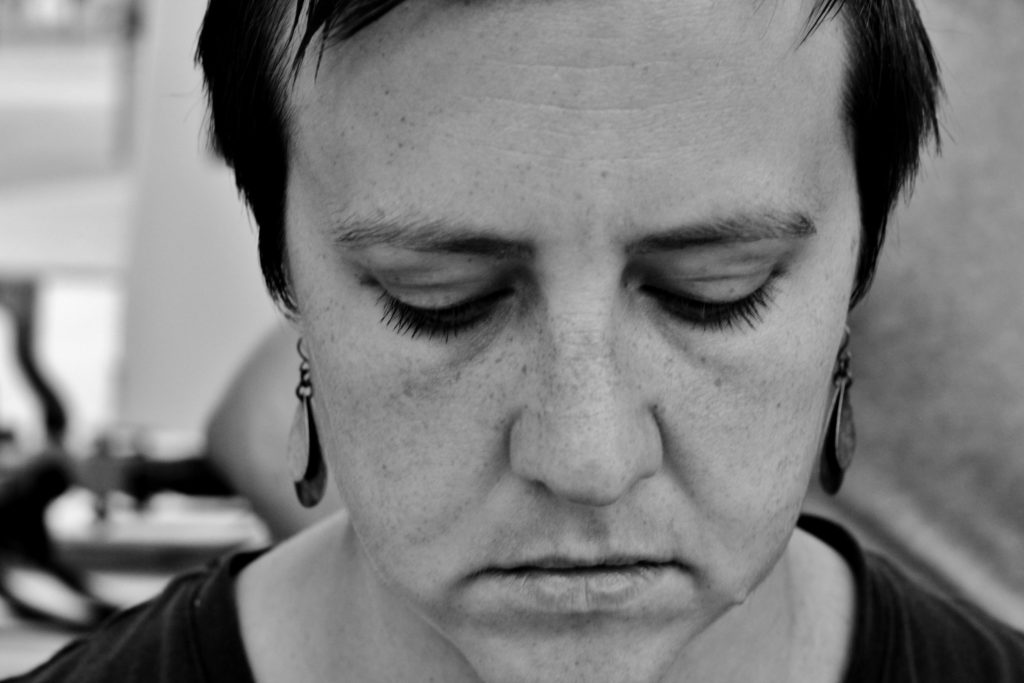A new study found that having been prescribed an antidepressant previously was associated with an increased risk of depressive relapse after full recovery. The risk was about three times higher than for those who had never taken an antidepressant.
The research was led by Jay Amsterdam and Thomas Kim at the University of Pennsylvania and published in the Journal of Clinical Psychopharmacology.
They write, “These findings support prior evidence of a negative influence of the number of prior antidepressant treatment trials on the likelihood of response and suggest that the number of prior antidepressant trials may also be associated with a greater odds of depressive relapse and a shorter time to relapse.”

According to Amsterdam and Kim, previous studies have found that a prior antidepressant trial results in up to a 50% loss of effectiveness for the next attempt. In the latest study, they wanted to see if previous prescriptions were associated with an increased risk of relapse after recovery.
Antidepressant use after recovery is sometimes recommended as it is thought to reduce the likelihood of relapse. However, research has been equivocal about whether long-term use prevents depressive episodes. Amsterdam and Jay’s study may provide some evidence that, rather than protecting against relapse, continued antidepressant use, and previous antidepressant use, are associated with an increased likelihood of relapse.
Their study included 148 people with the Bipolar II diagnosis and who had recovered from a major depressive episode. They were randomly assigned to groups: one group took fluoxetine (Prozac) after recovery, one group took lithium, and one group took a placebo (fake pill).
In the study, people taking fluoxetine were slightly less likely to relapse—about a third of those participants relapsed, compared to about half of those taking lithium or a placebo. However, the largest predictor of whether someone would relapse was whether they had taken antidepressants before being enrolled in the study. For each previous prescription of antidepressants, the risk of relapse went up about one and a half times. Those who had taken antidepressants were 2.93 times more likely to relapse than those who had not.
The researchers controlled for a variety of possible confounding variables, such as age, sex, race, number of previous episodes of depression and mania, age of onset, and baseline symptom severity. This means that they tested the theory that worse depression was associated with both increased antidepressant use and increased risk of relapse. After controlling for this possibility, their findings remained: there was still a significant, large effect of previous antidepressant use on the increased risk of relapse.
According to Jay and Amsterdam, the evidence is “particularly disturbing” as it supports the idea of iatrogenic harm: the long-term neurobiological effects of antidepressants damage the monoaminergic neurotransmitter system, resulting in loss of effectiveness and risk of relapse.
The authors write that “some cases of resistant depression may be iatrogenic in nature and result from repeated or long-term antidepressant use.”
The risks and benefits of long-term and repeated antidepressant use have rarely been studied, but previous research has found that long-term use is associated with diminishing effects on depressive symptoms and increasing adverse health outcomes. According to the authors, more than 25% of people taking antidepressants have been using them for more than 10 years. Only 5.8% take antidepressants for less than 2 months.
The data for this study came from a study of fluoxetine’s effectiveness in which less than half of the participants were considered to recover from depression after taking the drug. In addition, that study was open-label, which tends to inflate the potential benefits of the drug due to the placebo effect.
****
Amsterdam, J. D., & Kim, T. T. (2019). Prior antidepressant treatment trials may predict a greater risk of depressive relapse during antidepressant maintenance therapy. Journal of Clinical Psychopharmacology, 39(4), 344-350. doi: 10.1097/JCP.0000000000001049 (Link)














Maybe the symptoms of insomnia can be fixed by yellow or green tea
Report comment
and magnesium
Report comment
Or by grapes
Report comment
“the evidence is ‘particularly disturbing’ as it supports the idea of iatrogenic harm.” You’ve got an entire website, filled with people who’ve been saying the antidepressants cause iatrogenic harm for ages. But the fact the antidepressants cause iatrogenic harm is “news” to the “mental health professionals,” still? And our mainstream “news” is scolding a Presidential candidate for saying the antidepressants help some and harm others. While the supposed journalist is still touting the debunked “chemical imbalance theory.” Hum.
Report comment
Could this be something like tardive dyskinesia, which occurs when the nervous system becomes maladapted to or in the presence of antipsychotics?
Report comment
Yes, exactly! Unrelenting depression after long-term “AD” use is known as tardive dysphoria. It’s surprising to see research presented in a way that doesn’t incorporate this known condition since this outcome supports prior research on the “pro-depressant” nature of so-called “anti-depressants”.
https://www.sciencedirect.com/science/article/abs/pii/S0306987711000223
Report comment
Like Peter Breggin wrote in Toxic Psychiatry,
“People are depressed because they are living depressing lives.”
We survivors don’t need articles about ~mental health~, we need articles which are written by lawyers, chronicling the fight for restorative justice.
Report comment
Well, depression and suicide attempts increase when someone is using alcohol and street drugs too.
But targeting vulnerable groups for bogus medical practice falls within the Nuremburg Precedents. So those giving out the drugs should be getting prosecuted in the international court. And it is generally understood that it is wrong to even use the research data from the people who give out these drugs.
We should be hearing from things being done by attorneys to prosecute perpetrators, and to seize reparations for survivors, not articles about bull shit medical practices.
Report comment
Should be talking about legal developments, people who are finding ways to sue for redress.
Report comment